
SCUBAPRO Deep Elite Team - Caine Delacy
Caine Delacy
Profession: Marine Ecologist, and Underwater Photographer
Diver Since: 1996
Dr. Caine Delacy is a researcher and an educator, and he's also an avid diver. He's one of the fortunate few who has been able to combine his mission for bringing marine science to classrooms everywhere, with his passion for exploring the oceans of the world, and for that he always turns to SCUBAPRO.
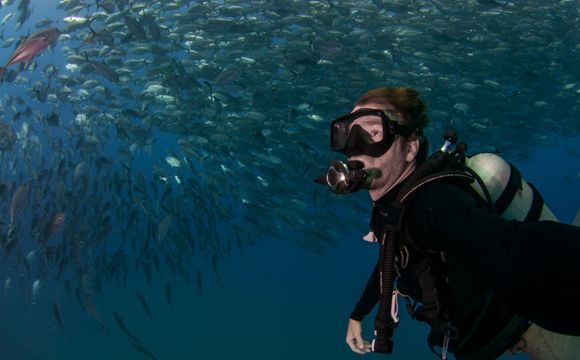
An Interview with Caine Delacy:
Can you tell us about yourself?
I started out like many divers with a childhood fascination about the sea, spurred on by my parents taking me snorkeling at a very young age. I grew up in Australia, and got certified in the southern ocean at the age of 16. From there I went to college near the Great Barrier Reef, studied marine biology, and while there became a dive master. This enabled me to get time out on the reef, out on the really amazing parts that only live-aboard dive boats can reach.
I then went on to a PhD at the University of Western Australia, and finished that in 2008. Since then I've worked all over the globe studying coral reefs and photographing the underwater world.
I live in Boulder, Colorado, now, and I work for a small marine science education company. Our goal is to bring marine science to every classroom, wherever it is, no matter if it's by the sea or landlocked. My role as Director of Science and Research is to ensure the content we create for our students is up to date with the latest scientific findings, and accurate. I also conduct research and am involved in building collaborative research programs with partners worldwide.
What got you started in diving?
It was really my stepdad who got my brother and I interested in the ocean. I remember vividly watching him SCUBA dive below me while I snorkeled on the surface, and I knew that as soon as I was able, I would get certified.
Watching him swim past a wobbegong shark in a little national park call Jervis Bay on the east coast of Australia, that was a defining moment in my childhood, and ultimately in my career. That interaction solidified my desire to dive deeper and begin a life centered on the oceans and the creatures within.
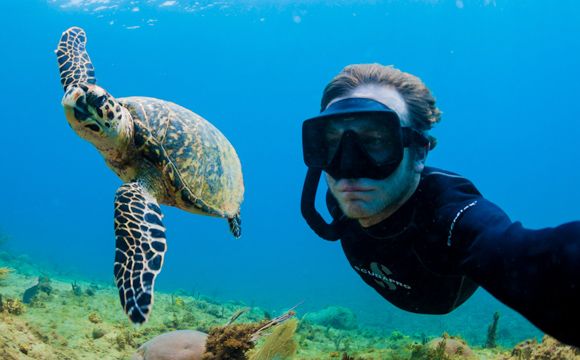
What does diving mean to you?
Diving means a lot to me for many reasons. Firstly, it's my career and a huge part of my professional pursuits. Secondly, it's also where I have a creative outlet in photography, so it gives me the reward of allowing me to capture moments and the beauty of the underwater world to share with others. But ultimately, diving gives me a sense of adventure, exploration, and it has allowed me to travel the world.
How has diving changed your life?
For the better! I couldn't imagine a life now where I wasn't a diver. The challenges, risks, rewards, moments and interactions with animals form memories and stories that you can't create anywhere else. If it wasn't for diving, I may be on a very different path.
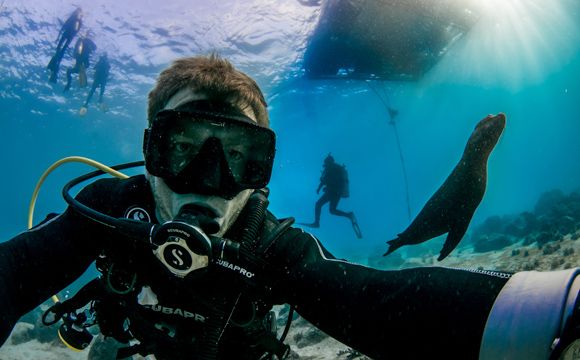
What kind of diving do you like to do?
I like all types of diving.
Where are some of your favorite places to dive?
Mozambique! As well as Southwestern Australia. Micronesia. Outer Great Barrier Reef.
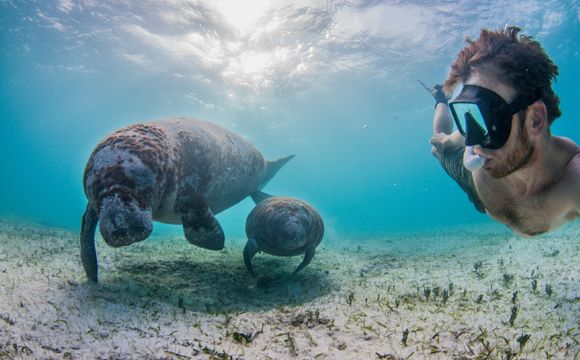
If you had to pick your most amazing experience under water, what would it be?
I think the first time seeing a whale shark was one of the most amazing experiences. I was on a dive at one of my research sites scouting for new reefs to survey, and we were drifting along the bottom at about 20 meters, when coming the other direction was a huge whale shark. It swam through our group, and we tried to keep up with it for a moment, but the current was too much for more than a minute or two of finning, and we soon watched it swim silently into the blue. I had been diving for almost 15 years by the time I saw my first whale shark, and it was worth the wait.
If you could make one statement about the oceans, what would it be?
Don't take them for granted. While we all don't live on the coast or by the sea, we all have an impact on our oceans and we must all try and reduce that impact.
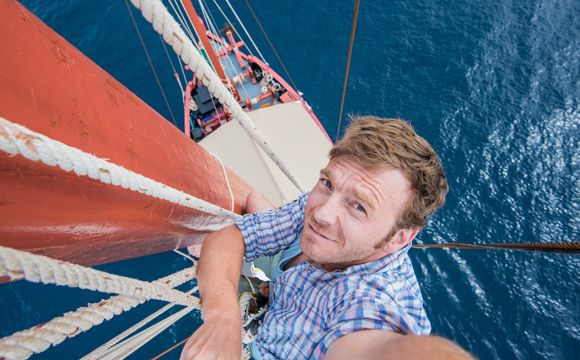
Of your list of accomplishments in your diving career, what are you most proud of?
It's hard to say specifically what I am most proud of. But, in general, I am most proud of the work I do with colleagues, when we put months of dives in to accomplish a research goal. Unlike recreational diving, when it's for research you have to get in and dive regardless of almost any weather. Basically, if the boat can make it out and back safety, we're going to be diving. So when the whole team is in it, grinding away each day and we succeed, those accomplishments with others are my proudest moments.
What would be your advice be to someone considering getting into diving?
Take your time. Get your open water certification and go diving. Don't chase certifications. The best divers are those who have time in the water in varying conditions. And also, take your time under water. The best way to see more, is to go slow. Take your time and you'll be astonished at what you'll see.
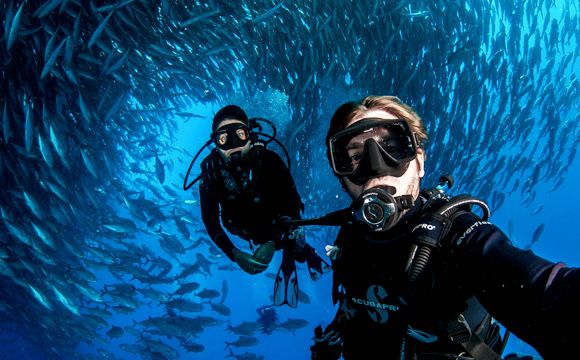
Why do you think we should all encourage more people to dive?
Like I said earlier, we all have a responsibility to look after our oceans, and sometimes it takes a connection to understand why. Diving allows us to get under the mirrored surface of the ocean, where we can see for ourselves the beauty, and, also in many places, the deterioration because of human impact. The more you know!
What is the favorite item in your dive bag?
My SCUBAPRO wetsuits. When in the field, I am often wearing one all day long without taking it off. To be able to do that without discomfort means I can focus on the task at hand.
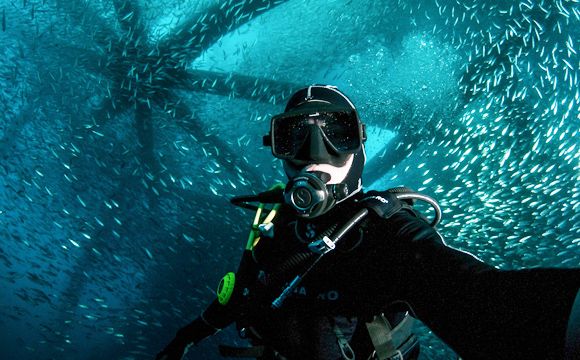
Why is SCUBAPRO your choice for dive equipment?
SCUBAPRO has you covered for all your diving needs. SCUBAPRO engineers excel at developing innovative, quality, and long-lasting products from snorkels to dive computers, scuba regulators to dive bags. And in my line of work SCUBA gear gets used hard, and is the last to receive any attention during long days of data collection, collating data, writing field notes, and running and maintaining experiments. So I need to know that I can rely on my gear as it's not going to get any special treatment or daily maintenance. That's why I use SCUBAPRO. It's gear that can handle the rigors of research diving.




